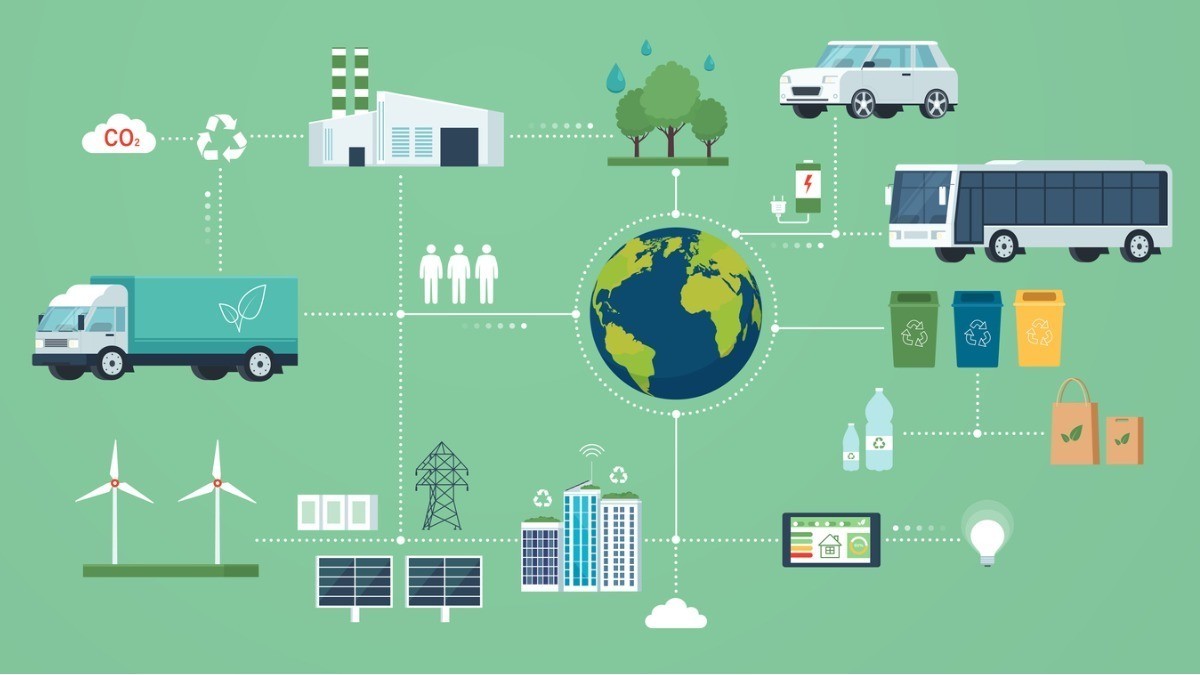The Role of Data in Achieving a Sustainable Supply Chain
June 3rd, 2024 - 7 min read
By Nishtha Verma, ESG Lead at Elm AI

With the recent increases in supply chain ESG mishaps in the past few months, the significance to achieve sustainability in supply chains is more significant than ever. Consumers demand transparency, regulators enforce stricter standards, and investors prioritize sustainable practices. Amidst these challenges, data has emerged as a pivotal tool for businesses striving to create sustainable supply chains. Insights derived from comprehensive supplier and audit data are invaluable, highlighting high-risk categories and vulnerable regions, ultimately driving informed decision-making and strategic improvements.
Understanding High-Risk Categories
High-risk categories within a supply chain are those that pose significant environmental, social, and governance risks. These risks can stem from various factors such as the nature of raw materials, the geographical location of suppliers, and the complexity of production processes. Common high-risk categories include:
Raw Materials: Certain raw materials, like palm oil, cocoa, and rare earth minerals, are notorious for their environmental impact and association with unethical labor practices.
Textiles and Apparel: The textile industry faces scrutiny due to labor practices, chemical usage, and water consumption, especially in developing regions.
Electronics: Sourcing of conflict minerals and electronic waste disposal are significant concerns in this category.
Agriculture: Issues like deforestation, water use, and labor exploitation are prevalent in agricultural supply chains.
For instance, Apple has faced challenges in ensuring the sustainability of its supply chain, particularly with the sourcing of cobalt, a key component in lithium-ion batteries that is linked to child labor and unsafe working conditions. By leveraging audit data, Apple identified this high-risk category and took steps to implement rigorous supplier standards and promote fair labor practices.
Identifying Vulnerable Regions
Vulnerable regions are areas where socio-economic and environmental conditions exacerbate the risks associated with supply chain activities. These regions often struggle with weak governance, political instability, and poor infrastructure, making it challenging to enforce sustainable practices. Vulnerable regions typically exhibit characteristics such as:
Resource Abundance Coupled with Governance Challenges: Regions rich in natural resources but lacking strong regulatory frameworks often face significant sustainability issues.
Manufacturing Hubs with Labor and Environmental Concerns: Areas known for their manufacturing capabilities but grappling with labor rights issues and environmental degradation.
Agricultural Centers with Ecological and Social Pressures: Regions where agricultural production is prominent, often involving deforestation, water use concerns, and labor exploitation.
Using data-driven insights, companies can pinpoint these vulnerable regions and implement targeted interventions. For example, a major apparel brand might use audit data to identify factories in Southeast Asia that are non-compliant with labor standards. This enables the company to prioritize these suppliers for improvement programs or to seek alternative, more sustainable sources.
The Power of an Insights Center- AuditSense AI
An insights center acts as the nerve center for sustainability efforts within a supply chain. Elm AI's AuditSense Insights Center is a state-of-the-art solution designed to revolutionize how companies manage and analyze their supply chain data. It offers unparalleled capabilities, such as:
Comprehensive Supplier Tracking: AuditSense allows businesses to monitor individual supplier data and holistic data across the entire supply chain. This ensures that companies can identify specific suppliers contributing to high-risk categories or vulnerable regions and address issues promptly.
Customizable Dashboards: The insights center features customizable dashboards tailored to capture the specific data companies need. Whether tracking non-conformances, analyzing year-on-year changes in identified risks, or monitoring industry-specific risks, AuditSense provides the flexibility to meet diverse requirements.
Automated Data Analysis: One of the significant pain points for businesses today is the manual analysis of supplier data, often done using cumbersome Excel sheets. AuditSense leverages advanced AI to pool data from multiple sources—audit reports, third-party data, and worker feedback—and conducts comprehensive analyses automatically. This not only saves valuable time but also enhances accuracy and consistency in data interpretation.
By integrating these advanced features, the AuditSense Insights Center empowers businesses to transition from reactive to proactive supply chain management. This transformation is crucial for achieving long-term sustainability goals and maintaining a competitive edge in a market that increasingly values ethical and responsible practices.
Case in Point: Unilever
Unilever, a global leader in consumer goods, exemplifies the effective use of data in achieving a sustainable supply chain. By leveraging insights from supplier data, Unilever has mapped the environmental and social impacts of its entire supply chain. The company identified that a substantial portion of its carbon emissions stemmed from raw material production. Armed with this knowledge, Unilever has worked extensively with suppliers to reduce emissions, improve water usage, and ensure fair labor practices.
To conclude, data is the cornerstone of sustainable supply chains. By identifying high-risk categories and vulnerable regions through meticulous audit data, companies can make informed decisions that drive sustainable practices. The insights center plays a crucial role in this process, offering a clear and actionable understanding of supply chain dynamics. As businesses continue to embrace data-driven strategies, the path to a sustainable future becomes not only clearer but also achievable.
Elm AI's AuditSense AI improves efficiency on supplier due diligence by performing reviews against companies’ code of conducts and audit reports in under 3 minutes (including major formats such as RBA, SLCP, BSCI, and SMETA), assigning risk scores, generating corrective action plans, and presenting aggregate trends and granular insights from real supplier data. Book a demo today to learn more.

